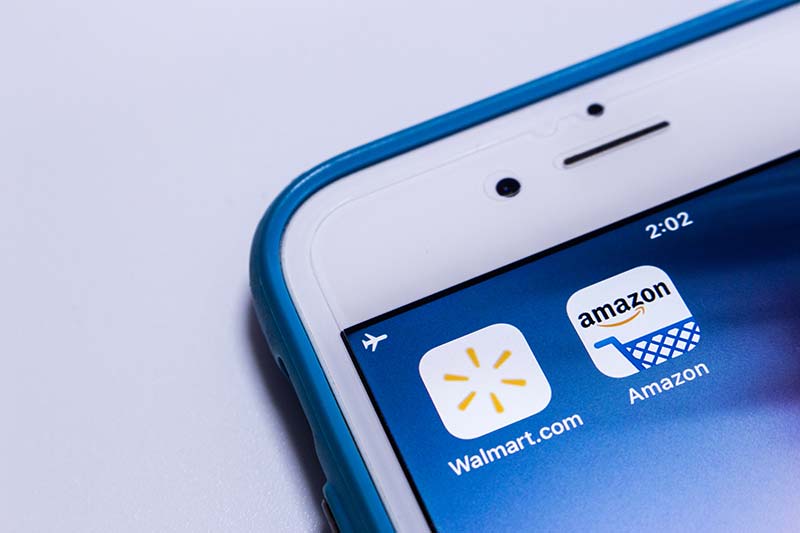Buy This, Not That: This Tech Giant Won Black Friday Shopping
Shah Gilani|December 4, 2024

The holiday shopping season just revealed a stunning shift…
And it’s rewriting the future of retail.
While traditional malls saw tumbleweeds where crowds once roamed, smartphones became the new shopping mall, shattering records and leaving analysts stunned.
Behind this seismic shift, two tech giants are locked in an epic battle for advertising supremacy – but only one appears poised to wear the crown.
The story behind these numbers points to a clear winner in the high-stakes game of digital commerce.
Find out which tech giant is riding the smartphone shopping wave to new highs in my latest Buy This, Not That video.
Click on the thumbnail to dive in.
TRANSCRIPT
Hey, everybody. Shah Gilani here with your weekly BTNT, as in Buy This, Not That.
I have to talk about shopping with Thanksgiving. There were a lot of sales on Thanksgiving Day, Black Friday through Cyber Monday.
I have some numbers from Adobe Analytics. There are other numbers… Salesforce has numbers, but many folks follow the Adobe Analytics numbers, so I’ll give you those.
Cyber Monday spending hit $13.3 billion this year, up 7.3% from a year ago. The five-day total from Thanksgiving through Cyber Monday was $41 billion in sales.
Most sales came from online.
Looking at numbers from the Mall of America and other locations and retail analytics firms, in-store sales were down on average around 3%.
Different numbers exist for different types of stores and malls versus standalone buildings versus strip malls versus big shopping malls. But the average was down about 3%, and traffic was down around the same amount.
That’s likely going to continue to fade relative to online sales.
The big deal about online sales this year was, for the first time, the majority of online sales for the entire period from Thanksgiving through Cyber Monday happened on mobile. People buying on their phones.
Fifty-seven percent of all sales on Cyber Monday happened via mobile.
That’s huge.
It was $7.6 billion worth… a 13.3% increase over a year ago.
In 2019, the amount of sales done on phones was 33%. It’s now up to 57%. That’s a huge jump in people using their mobile phones to shop.
Some fun facts for you…
Comparing an average sales day in October to Cyber Monday sales for the top category of toys… Toys increased 680% over the average of any October day this year.
One day, 680% higher than the average for any day in October.
Appliances up 464% versus the average day in October.
Electronics up 452%. Apparel up 392%. Those are the big category winners.
Thanksgiving had huge sales. It was a record day for sales on Thanksgiving.
Again, most sales came from mobile on Thanksgiving. I couldn’t figure out a good number, but it certainly appeared to be north of 80%, maybe 90% online. Likely because many stores were closed on Thanksgiving, but the numbers were huge. They were all estimates.
But new high of $6.1 billion sold online for the most part on Thanksgiving Day.
Who are the big beneficiaries of these online and mobile sales?
You’re going to have to go with the big advertisers and the companies that funnel the advertising money into their own pockets.
The two biggest are Google (Alphabet) and Meta, formerly known as Facebook.
Google is the biggest in the business, period. It comes down to people buying, shopping online. The advertising is working, and the ad dollars spent are translating down to profits to the likes of Google and Meta.
But which is a buy, which isn’t? I’ll make it easy for you.
Meta is a BUY and Google is NOT.
Why isn’t Google a buy? First, look at the stock chart. It’s trading around $172 and change. It’s been sloppy.

Yes, it’s up. That’s not necessarily because of what’s just happened. There was no big spike in the company’s stock given the extraordinary money they must have made on advertising over the period. But it’s been okay.
Meta’s stock, in the meantime, had a nice pop. New high, by the way.

But back to Google. It has problems. There’s an antitrust case against Google. There are calls to break up Google, specifically to have Alphabet sell its search engine business.
There goes a lot of revenue. There goes a lot of the source of all the materials that it gets.
So Google is not the buy here. Too much of an undecided future for Google right now. The antitrust case could go on for a long time. Whether it is asked to be broken up, that’s going to meet judicial challenges.
Don’t buy Google right here.

Buy Meta. Meta just made a new high.
It’s expensive at $608-plus a share, but you can buy partial shares now. So don’t worry about the price tag for one share.
If you want to put $50 into Meta now, you can do it. Meta is a much better stock to own right now. It has done a better job with its ad sales and attracting customers to its ad platform because of AI. It’s incorporating AI more than Google is in drawing attention to ads.
Meta is getting more money for the ads that it places because online sellers, retailers know that Meta has all of this data from Instagram, WhatsApp, and Facebook about potential users, potential buyers of the product. So it’s using AI to help direct ads.
Yes, it’s making more money. Not more money than Google right now, but it’s catching up to Google, and it’s eventually going to surpass Google, in my opinion.
But the stock has already surpassed Google in terms of performance.

There you go. Buy Meta, not Google. Catch you guys next week.
Cheers.

Shah Gilani
Shah Gilani is the Chief Investment Strategist of Manward Press. Shah is a sought-after market commentator… a former hedge fund manager… and a veteran of the Chicago Board of Options Exchange. He ran the futures and options division at the largest retail bank in Britain… and called the implosion of U.S. financial markets (AND the mega bull run that followed). Now at the helm of Manward, Shah is focused tightly on one goal: To do his part to make subscribers wealthier, happier and more free.



